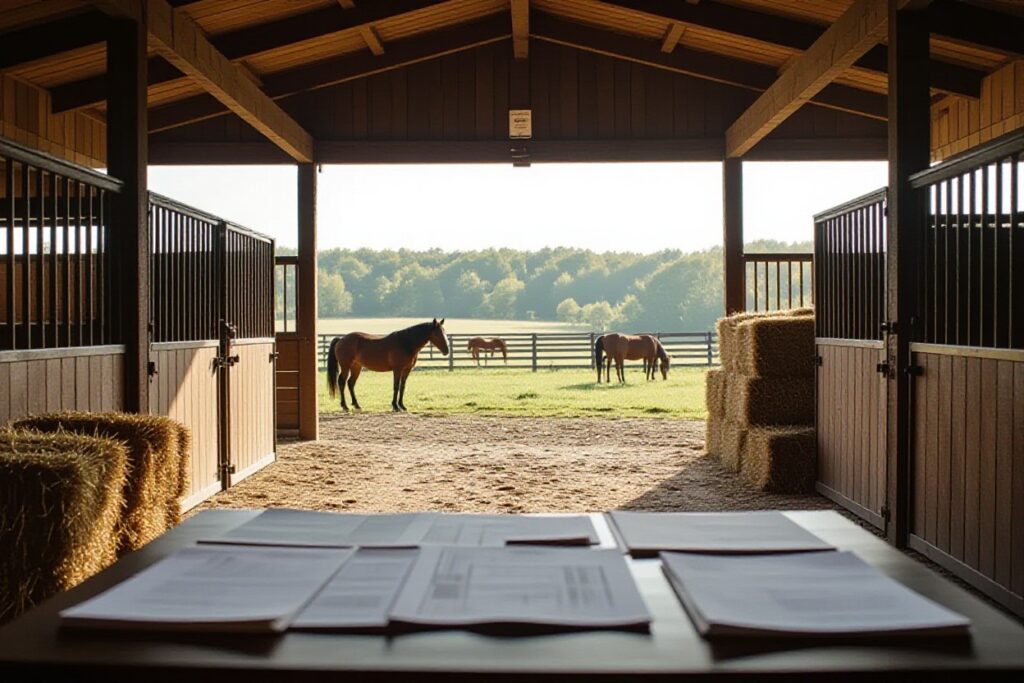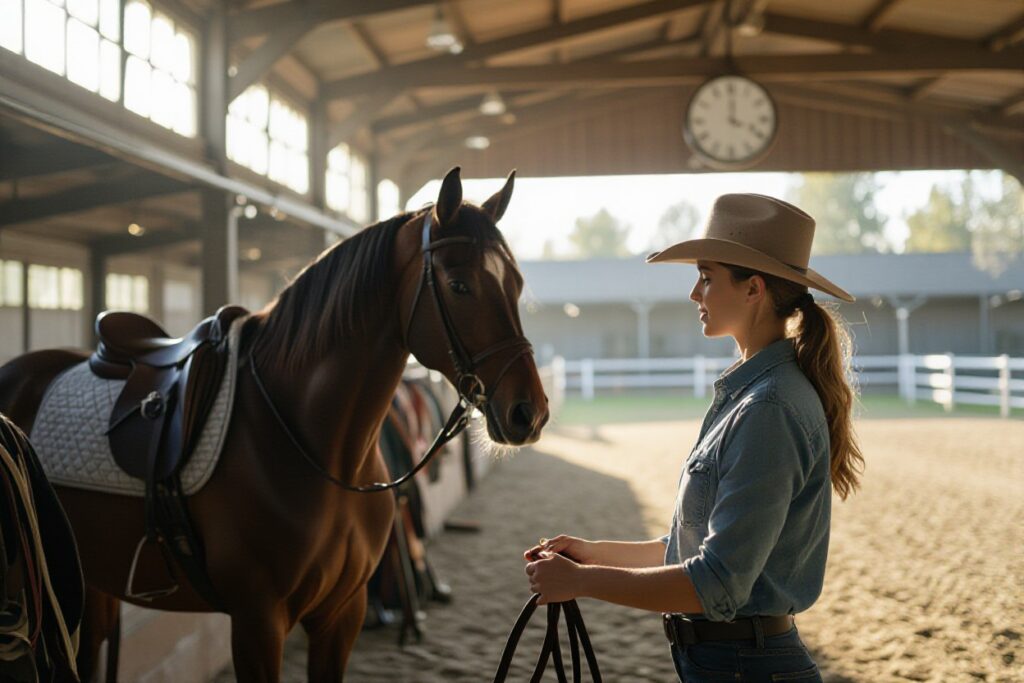It’s crucial for you to understand the ins and outs of horse boarding contracts in Virginia to ensure a positive experience for both you and your horse. When entering into a boarding agreement, several key rights and responsibilities come into play.
Firstly, as a horse owner, you have the right to expect a safe and secure environment for your animal. This includes adequate shelter, access to clean water, and proper nutrition. The boarding facility should maintain facilities and provide necessary veterinary care where applicable. If any of these conditions are not met, you may have grounds to address your concerns with the facility owner.
On your end, it is your responsibility to disclose your horse’s medical history and any specific needs or behaviors that could affect its boarding. This information is vital to ensure the facility can adequately care for your horse. Additionally, you are usually required to provide proof of vaccinations and insurance, protecting both you and the boarding facility from potential liabilities.
Financially, horse boarding contracts typically outline the costs involved. You have the right to know the exact fees associated with boarding, which can include monthly rates, additional costs for feed, and any extra services such as grooming or training. Make sure these costs are detailed in your contract to avoid unexpected charges. It’s also important to understand their policies regarding payment methods and late fees.
Another critical aspect relates to notice periods. You often have the right to terminate the contract, but there may be specific requirements for providing notice before moving your horse or discontinuing services. Check the contract for stipulated notice periods and ensure you comply to avoid potential penalties.
Regarding the facility’s responsibilities, you should expect a clear outline of their liability in case of injuries or health issues your horse may encounter while in their care. While boarding facilities generally include a liability clause, it’s wise to discuss this with them and clarify the extent of their responsibility if any accidental harm befalls your animal.
You should also be aware of your rights concerning access. As a boarder, you typically have the right to visit your horse during specified hours. However, it’s helpful to understand the facility’s policies on access and any events that may limit your ability to see your horse.
Lastly, your boarding contract may contain clauses related to the behavior expected from both parties. You are usually expected to adhere to rules regarding stable maintenance and general conduct on the premises. Conversely, the facility must also staff trained personnel to manage care appropriately and not engage in any discriminatory practices.
Thus, comprehending your rights and responsibilities in horse boarding contracts in Virginia is vital for ensuring a secure and satisfactory environment for your horse. A well-understood contract creates a foundation for a beneficial relationship between you and the boarding facility.











